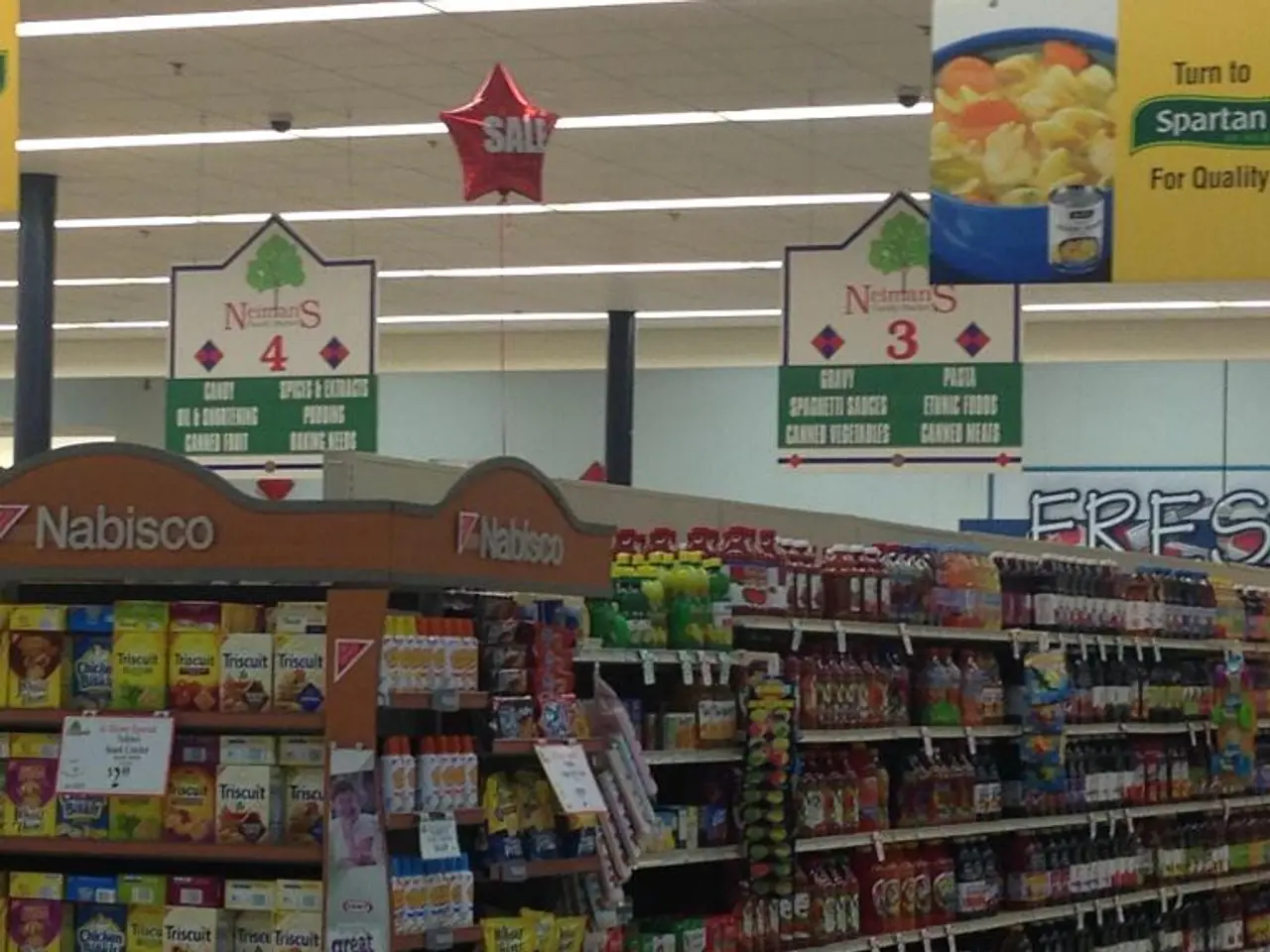Venerable groceries mainstay initiates bankruptcy filing
In a significant move, Del Monte Foods, a 138-year-old company renowned for its canned fruits and vegetables, has filed for Chapter 11 bankruptcy on July 1, 2025. The decision comes amidst a challenging business landscape marked by excessive debt, declining consumer demand, increased inflationary costs, and supply chain volatility.
The company has been grappling with a downturn in its private label business, higher promotional spending, and outsized production commitments after anticipating higher sales volumes that failed to materialise. These issues, combined with annual interest expenses that exceeded projected earnings, left Del Monte with historically low liquidity. The company also closed some production facilities to reduce costs, but rising costs and changing consumer habits continued to pose challenges.
Del Monte, however, is not letting adversity deter its resolve. The company has entered into a restructuring support agreement with its lenders and secured $912.5 million in financing to sustain operations during a court-supervised sale process. This move aims to accelerate turnaround efforts and position the company for long-term viability.
Del Monte intends to continue normal operations during this period, with certain international subsidiaries excluded from the filing. The company is actively pursuing a sale of its key assets, including College Inn broths, Contadina canned tomatoes, and the Del Monte brand, under court supervision, with support from key creditors. Given Del Monte's strong brand portfolio, it is likely to attract interest from strategic buyers in the food and consumer packaged goods sector.
Greg Longstreet, Del Monte's President and CEO, expressed confidence in the company's future. He stated that with an improved capital structure, enhanced financial position, and new ownership, Del Monte will be better positioned for long-term success. Longstreet also emphasised that a court-supervised sale process is the most effective way to accelerate the company's turnaround.
The bankruptcy filing comes amidst a dynamic macroeconomic environment where consumers are cutting back on their spending and shifting towards private labels. Longstreet acknowledged these challenges, stating that they have intensified Del Monte's struggles.
Sarah Foss, global head of legal and restructuring at Debtwire, pointed out that Del Monte has incurred increased costs related to surplus inventory due to a decline in consumer demand, which the company has had to warehouse and attempt to move off shelves with increased promotional spending. Foss also noted a shift in consumer preferences away from preservative-laden canned food towards healthier alternatives.
Despite the challenges, Del Monte remains optimistic. The company claims it operated the largest fruit and vegetable cannery in the world by 1909, a testament to its historic significance in the industry. As it enters the peak canning season, Del Monte will continue to operate as normal, hoping to weather this storm and emerge stronger.
Founded in 1886, Del Monte got its start in San Francisco, where it built its famous cannery in 1907. Today, it stands as a symbol of resilience in the face of adversity, a testament to the enduring power of innovation and determination in the world of business.
[1] Del Monte Files for Bankruptcy, Seeks Sale of Assets (The Wall Street Journal, July 1, 2025) [2] Del Monte Foods Files for Bankruptcy Amidst Challenges (Bloomberg, July 1, 2025) [3] Del Monte's Bankruptcy Filing: What it Means for the Food Industry (Forbes, July 1, 2025)
Del Monte Foods, despite encountering financial difficulties such as excessive debt, declining consumer demand, and increased costs, is seeking long-term viability by restructuring its operations and selling key assets like College Inn broths, Contadina canned tomatoes, and the Del Monte brand. This move is supported by strategic buyers in the food and consumer packaged goods sector, given Del Monte's strong brand portfolio.
In the face of a challenging business landscape and a dynamic macroeconomic environment where consumers are spending less and shifting preferences, Del Monte plans to adapt, leveraging its historical significance and resilience in the industry.




